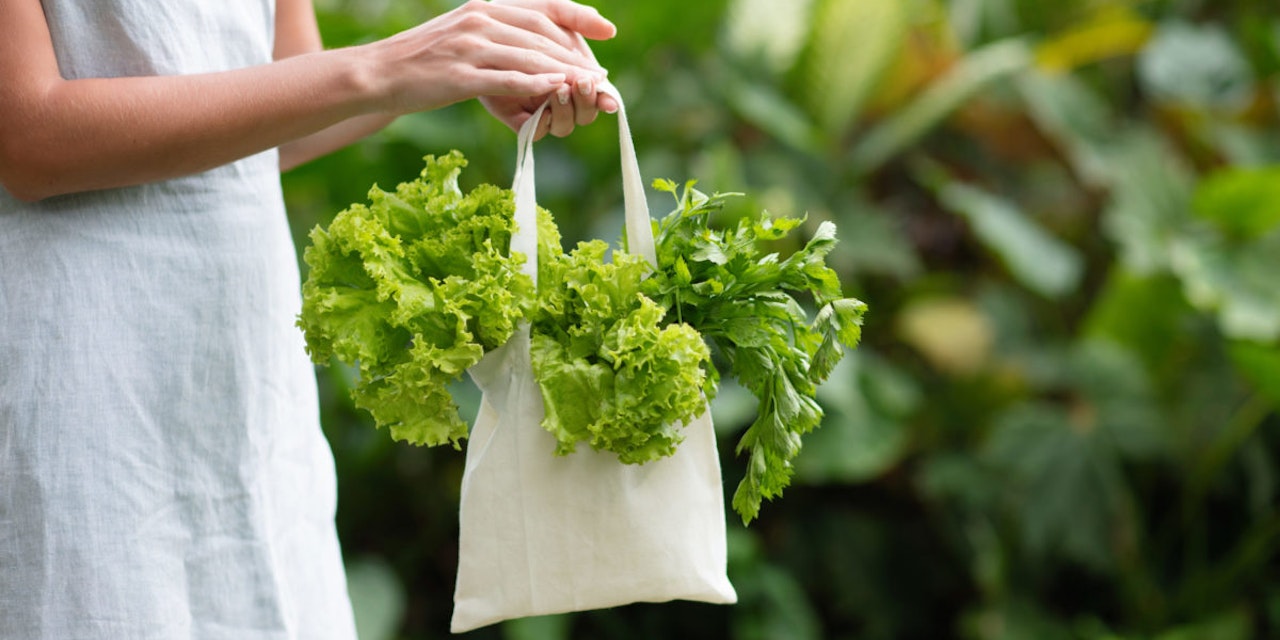Sustainable Eating in Practice
According to the USDA, as much as 30-40% of the food supply goes to waste. Read on to lean how to reduce food waste.
- Published: 5/8/2020
- Categories:
- 3 min. read

- Published: 5/8/2020
- Categories:
- 3 min. read
There are many things to keep in mind when it comes to food and the environment. The good news is that there are plenty of ways to take action to eat and act more sustainably. Below we have highlighted some small things you can do that make a big impact!
Limit food waste

According to the USDA, as much as 30-40% of the food supply goes to waste. Taking responsibility as a consumer is vital, not only for the environment but also from an economic perspective.
How to do it?
Don’t buy more than you need. Plan what you will eat for the upcoming week, make a shopping list, and stick to it. Extra items can be tempting, but if you’re unsure what to do with them in practice, they will most likely not leave the package once you bring them home. It’s best to stick to your plan and shopping list.
Use the freezer. A lot of people throw away food when it goes bad. Instead, take care of it before it is too late. Most foods can easily be stored in the freezer for an extended lifespan of several months.
Store your food correctly. Not storing your food correctly is a common mistake people make that reduces the shelf life for most foods, especially perishables such as fruit and vegetables. Take care of leftovers: If you usually end up with plenty of leftovers at the end of the week, do a leftover buffet for dinner. Omelets, stews, stir-fries, salads, and frittatas are examples of simple dishes that easily use up leftovers.
Give plant-based a try

Reducing meat intake by including more plant-based options in your diet can benefit both the environment and your individual health. Eating a more plant-based diet doesn’t mean you have to exclude all animal products. Replacing a few meals per week with plant-based options is a good start. You find plenty of delicious plant-based recipes in the Lifesum app; here are a few examples!
Go for local produce when possible

Local produce means that the food is produced and distributed in a limited geographic area (1). In addition to cutting transport miles, you also support your local businesses. Local produce does not always equal organic, but a lot of local farmers do offer organic foods. If you are having a hard time finding local produce at your grocery store, see if you have a farmers market nearby and give it a try!
Eat according to the season

Seasonal eating usually goes hand in hand with eating more local produce. Eating foods in season means that you are more likely to find them produced locally; it also usually means a lot more flavor and a more affordable price- win, win!
Other small things with a big impact

- Bring your own bag to the grocery store.
- Pay attention to packaging! Use environmentally friendly options to store food before using plastic bags or plastic wrap.
- Drink tap water and bring your own bottle instead of buying plastic ones.
- Bring your own coffee mug to your coffee shop and skip the disposable takeout cup.
- Buy large packages of food rather than many small ones to reduce the packaging.
- Recycle!
Reference
1. U.S Department of Agriculture. Local Foods. https://www.nal.usda.gov/aglaw/local-foods#quicktabs-aglaw_pathfinder=1
All of the content and media on Lifesum is created and published for information purposes only. It is not intended to be used as a substitute for medical advice or treatment. Users should always consult with a doctor or other health care professional for medical advice. If you have or think you are at risk of developing an eating disorder, do not use the Lifesum app and seek immediate medical help.